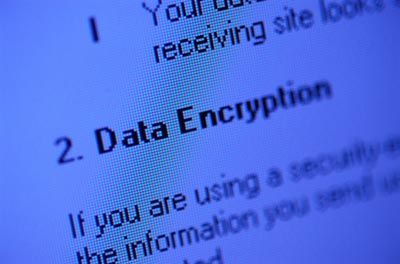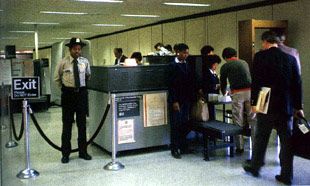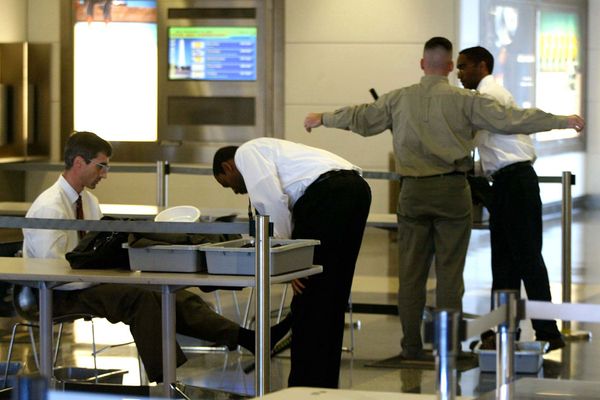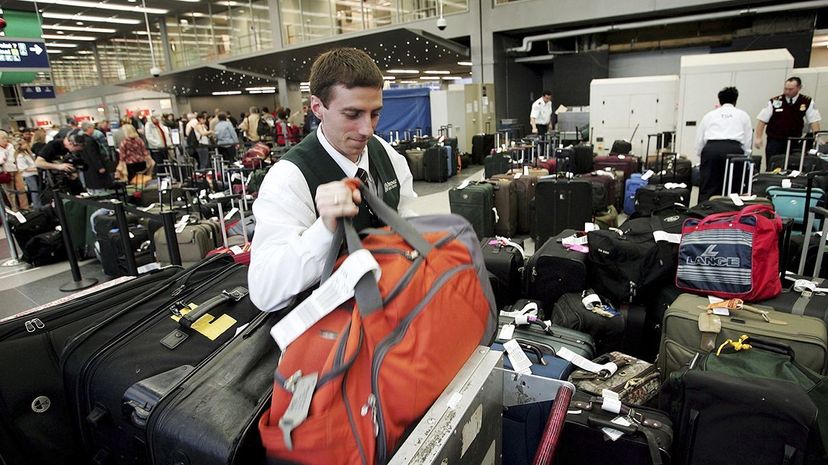
When passengers travel by plane in the United States and check their luggage, they give the Transportation Security Administration (TSA) implicit permission to search their bags. But can the TSA search the data of electronic devices they find inside bags they open?
On March 21, 2017, the U.S. Department of Homeland Security (DHS) announced what it called an "aviation security enhancement" that would be imposed on travelers departing for the U.S. from 10 airports in eight Muslim-majority countries. People on flights out of those places — which include major air travel hubs such as Dubai International Airport and Ataturk International Airport in Istanbul — can no longer bring any electronic devices bigger than a smartphone with them as carry-on items in the plane's main cabin. Instead, laptop computers, tablets and other gadgets would have to be checked as baggage at the counter or the gate, and transported in the aircraft's cargo hold. The United Kingdom instituted similar, though less broad, restrictions.
Advertisement
DHS has been coy about the nature of the terrorist threat that led to the change of policy. An unnamed U.S. intelligence official told CNN that an Al Qaeda affiliate has been looking for a way to hide explosives in the batteries or battery compartments of devices such as laptops. But a security expert told the Washington Post that the measure didn't make much sense, because a terrorist still could use a smartphone to set off a laptop bomb stored in the belly of the plane.
A lot of travelers are worried about letting their laptops out of their sight, since that increases the possibility of theft. Others worry that the laptop rule might have a hidden purpose — to separate travelers from their devices so that someone can surreptitiously gain access to them.
"Once you let the device out of your sight, anyone with access to it could search your data, try to install malware, or otherwise tamper with your sensitive information," says Nate Wessler, a staff attorney for the American Civil Liberties Union.
The U.S. government denies that it's using the laptop rule as an excuse to spy. "DHS is not looking at anybody's data as a result of this enhanced security measure," says Lisa Farbstein, a spokesperson for the TSA. And neither TSA, which conducts security checks at U.S. airports, nor DHS has staff screening baggage in foreign airports, she said.
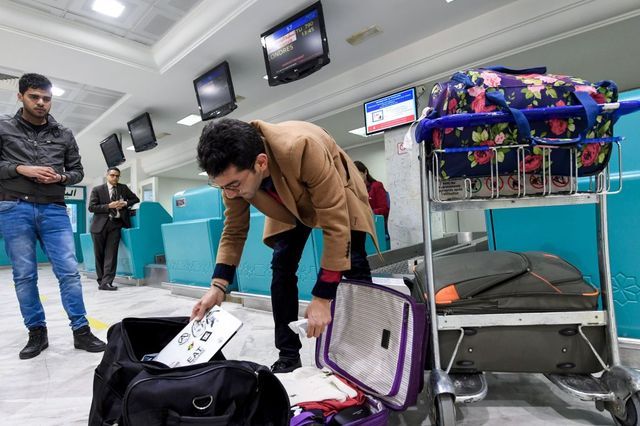
But all this attention to laptops-in-baggage may be obscuring what to privacy advocates is a bigger issue. Once travelers arrive at a port of entry on U.S. soil, all of the devices that they bring along — including their phones — are subject to search by officials of U.S. Customs and Border Protection, which is a branch of DHS. According to this ACLU analysis of the issue, CBP agents can ask travelers for their passwords, and visa holders and tourists from countries with visa waivers can be refused admittance to the U.S. unless they comply. U.S. citizens don't face that risk, but they can still be temporarily detained, and agents can confiscate their devices and hold onto them for months afterward. Here's a 2009 directive that spells out CBP's procedures for searches of electronics.
The number of searches of cell phones by border agents has mushroomed from 5,000 in 2015 to 25,000 last year, and indications so far are that 2017 might break that record easily, according to CNBC.
So far, federal courts have found that the government's searches at ports of entry don't violate the Fourth Amendment's protection against unreasonable search and seizure.
But the courts have imposed a few limitations. In 2013, the U.S. Ninth Circuit Court of Appeals ruled that agents are entitled to give your phone or laptop a cursory perusal without having to justify themselves. But they need to have a reasonable suspicion that you've committed a crime to conduct a heavy-duty forensic search, which might include using high-powered search algorithms to comb through your data for clues, scrutinizing metadata for files, or restoring files that have been deleted — "Stuff that most computer users don't even know is there," says Wessler.
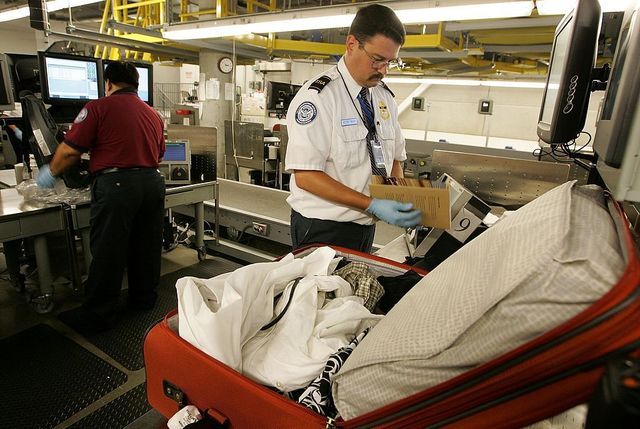
But the ACLU argues that those powers still give agents too much leeway. "Even cursory searches can reveal large quantities of sensitive information," says Wessler.
Sen. Ron Wyden recently sent a letter to DHS asking for information about its policies, and said he plans to introduce legislation that would require agents to get a warrant before looking through the contents of anyone's phone or laptop.
In the meantime, the ACLU advises travelers to take as few devices and as little personal data with them as possible when they're traveling into the U.S. The Electronic Frontier Foundation, another privacy advocacy group, offers this detailed guide for travelers on how to protect their devices and information.
Advertisement
